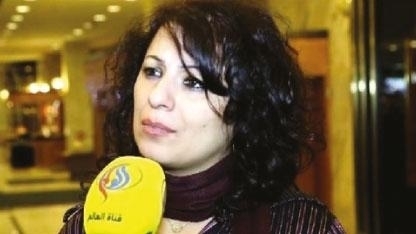The National Democratic Action Commission considers it "possible to build upon" the results of the second consultative meetings in Moscow, calling to connect Moscow's results with Cairo's efforts to resolve the four-year crisis in the Syria.
In an interview with al-Watan in Moscow, Secretary of the Commission Mais Kredi said: "we will declare our official position upon return to Damascus, but we think it is possible to build on the results in Moscow. Advocates of the political solution must be confident in the Moscow meetings because Russia does not interfere with Syria’s internal affairs and it desires a Syrian-Syrian solution".
Kredi expressed her belief the "agreement on the first point of the agenda is already part of the convictions of the national opposition. Sure, the opposition has the full right not to trust the assurances (of the government) and to request the adoption of confidence-building measures, but we committed a systematic error when we agreed and adopted the agenda. Thus, we had no chance to avoid discussions about the issue of terrorism after the confidence-building process".
Kredi stressed that she is "convinced that the national opposition is against terrorism, but tensions affect some political opposition figures and this affects the course of action, in addition to the lack of attention to the time factor. Furthermore, the accumulated experiences between the opposition and the regime do not provide positive indicators.
“The fact is there is a fundamental error we tried to highlight but nobody listened enough, that is giving the independents or some political entities more representation. Objectivity and balance are required when dealing with the different forces, so that no political party believes they are leaders in the street while the truth is elsewhere".
Kredi pointed to "General problems in Moscow II because there are no radical differences, but maybe some opposition forces bet on regional projects.
Representative of the Syrian Democratic Platform Samir al-Aita pointed to a fundamental disagreement between his position and the position of the Coordination Commission and the position of Qadri Jamil, the head of People's Will Party", she said.
“I didn’t follow what happened between Jamil and Aita, but it seems there is a disagreement between them. However, the Commission can explain this better because they are aware of the agreements between them and what are the contradictions and their causes. Nationalism is not a controversial issue, and we are not authorized to give certificates of nationalism to anyone. The performance lacks realism and experience, perhaps, but there is no precise criteria for evaluation", Kredi said.
Kredi also considered the head of the official delegation to Moscow II and Permanent Syrian Representative UN Bashar al-Jaafari was “tough".
In a related context, the member in the Executive Office of the Coordination Commission, Munther Khaddam, posted on his Facebook page: "I have no doubt that if the regime had to negotiate with any of the forces that take up arms to fight him, he would negotiate with ultimate seriousness and respect – he might have given concessions too, and this happened in more than one area under the pretext of ‘reconciliation’".
"But to negotiate with a peaceful opposition that is powerless, except for the national sincere word, the power of persuasion and conscience, the regime considers it a game. The failure of Moscow II will result in many conclusions. Perhaps the most dangerous of which is strengthening the argument of extremists and the advocates of violence", Khaddam added.
The second round of Syrian-Syrian consultative meetings was held in Moscow from April 6-9, and concluded last Thursday with the announcement of a "document" described by Jaafari as an "important breakthrough that was not available in the past", while Moscow considered it a "base" towards a peaceful solution to the crisis.
The Russian Foreign Ministry announced the document on Saturday bearing the name of the "Moscow foundations", agreed upon in the second Syrian-Syrian consultative meetings.
In a statement quoted by SANA news agency, the Russian Foreign Ministry explained the document contains 10 points. First, the settlement of the crisis in Syria can be reached by political means on the basis of a consensus, based on the principles of Geneva statement. Secondly, calling on the international community to exert serious and instant pressure on all the Arab, regional and international parties which contribute to the Syrian bloodshed. This can be achieved through the implementation of relevant international counter-terrorism Security Council resolutions, and the cessation of all acts supporting terrorism – facilitating the passage of terrorists to Syria, training and harboring, and financing and arming them.
The document’s third point called on the international community to lift sanctions on Syria, immediately and completely, and to suspend all the coercive economic measures unilaterally imposed on the Syrian people and their institutions.
The fourth point stressed that the results of any political process must be based on national sovereignty and popular will, which is expressed through democratic means. The document added that the production of any political process should be a result of agreement between the Syrian government and all the forces and parties who believe in a political solution.
Translated and edited by The Syrian Observer


